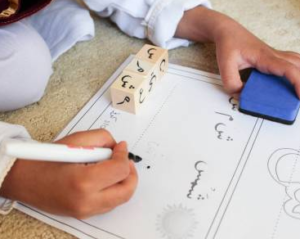The Essence of Qurbaani and Hajj (Part 3) – Hakeemul Ummat Mujaddidul Millat Hazrat Moulana Ashraf Ali Thanwi (Quddisa Sirruhul Azeez)
![]()
Another Reason for Qurbaani’s Association with Hajj
Another reason for the association [of Qurbaani with Hajj] is that Qurbaani also takes place during the Days of Hajj. Thus, from this angle too, Qurbaani and Hajj are associated, just as Ramadhaan and the Qur’aan are.
So, both share a distinct relationship, although some instances of Qurbaani during the said days are Waajib, and some are Mustahab. For the Hujjaaj in particular, during these days and in the Haram, Qurbaani enjoys superior excellence.
In short, since there are several reasons of affinity between the two, it thus seems appropriate to speak on both.
The Meaning of Hajj Being a Bodily and Monetary Ibaadat
I said that Hajj and Qurbaani are combinations of monetary and bodily Ibaadaat. The Fuqaha have unequivocally declared Hajj to be a combined Ibaadat, which means that in Hajj one has to utilize oneself, that is travel, and the Arkaan [elements, constituent acts, rites] are executed with the body as well. Being bodily is thus manifest.
As far as being monetary is concerned, it does not mean monetary in this sense that without spending money it is not possible to carry out the Hajj. We take a person who is a Makki [a resident of Makkah Mukarramah], and he is a pauper as well. He did not make Qiraan [Hajj and Umrah with one Ihraam] or Tamattu’ [Hajj and Umrah with two Ihraams], as he is a Hanafi.
Or we assume he is a Shaafi’ who made Qiraan or Tamattu’, but instead of the damm [sacrificial animal] of Qiraan and Tamattu’, he fasted three days.
Or leave aside this case of Qiraan and Tamattu’ because the substitute [the three fasts in this case] carries the same rule as the substituted [the damm of Qiraan and Tamattu’], which means that in effect he, [the Makki Qaarin or Makki Mutamatti’ who kept three fasts instead of sacrificing an animal], spent money. Therefore, assume that he made Ifraad [Hajj without Umrah] and he carried out all the rites on foot. See, not a cent was spent, and nor was it obligatory upon him [to spend money], and his Hajj was accomplished.
Hajj, therefore, is not a monetary act in the sense that without money it cannot be done. It is monetary, however, in the sense that in most cases money is spent. That most of the Hujjaaj are outsiders, confirms this. The majority of them, too, have travelled on some means of transport taking along provisions for the Hajj.
Thus, in practice and in most cases, it certainly is associated with money. Although there are many determined and penniless outsiders who come by foot, but in proportion to the wealthy, they are few.
These indigent people are even mentioned in the Aayat:
وَاَذِّنْ فِي النَّاسِ بِالحَجِّ يَاْتُؤْكَ رِجَالًا (الاية)
(O Ibraheem!) Announce the Hajj to people. They will come to you on foot and on camel-back.
Although Hajj by foot is not commanded, however, this account [of people coming by foot] is given without censure. We learn thereby that it is approved by Haqq Ta’ala.
It is obvious that there are two possibilities in coming by foot. One is that he [the Haji] has a means of travel. The second is that he does not.
The first possibility is false, because the Shariat does not sanction travelling by foot when one does have a means of travel, as this is miserliness. How can such a miser be praised who does not benefit himself [with his wealth] and he withholds it from others, as travelling by some means requires spending which in turn brings benefit to others!
From this we have an indication that it is even permissible to make Hajj without provisions, just as it is permissible without a means of transport [the second possibility].
The words عَلٰى كُلِّ ضَامِرٍ [on lean camels] is indicative of this [since the leanness of the camels is on account of the lack of provisions of the riders]. Thus, the charge against such people who dared set out on foot out of overwhelming enthusiasm; that they are useless people who bring upon themselves difficulty and trouble others as well, is a charge stemming from ignorance.
(To be continued, Insha Allah)



